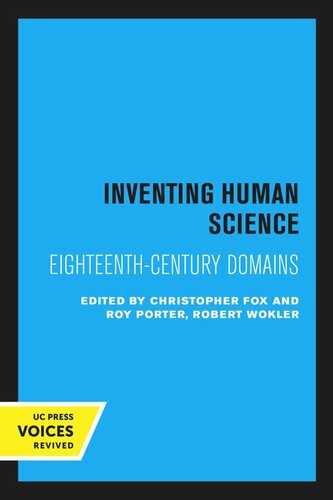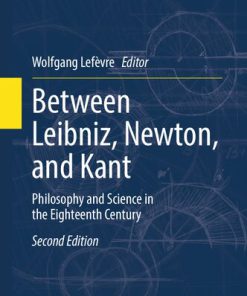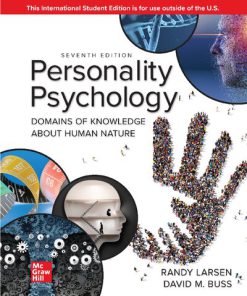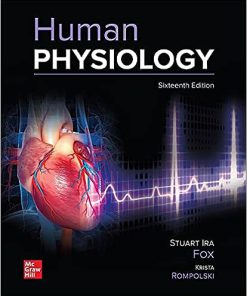Inventing Human Science Eighteenth Century Domains by Christopher 9780520916227 0520916220
$50.00 Original price was: $50.00.$25.00Current price is: $25.00.
Inventing Human Science Eighteenth Century Domains Christopher Fox (Editor) – Ebook Instant Download/Delivery ISBN(s): 9780520916227,0520916220

Product details:
- ISBN 10:0520916220
- ISBN 13: 9780520916227
- Author: Christopher
Inventing Human Science
Eighteenth-Century Domains
The book argues that the most fundamental inspiration for the Enlightenment was the scientific revolution of the seventeenth century. Natural philosophers from Copernicus to Newton had created a magisterial science of nature based on the realization that the physical world operated according to orderly, discoverable laws. Eighteenth-century thinkers sought to cap this achievement with a science of human nature. Belief in the existence of laws governing human will and emotion; social change; and politics, economics, and medicine suffused the writings of such disparate figures as Hume, Kant, and Adam Smith and formed the basis of the new sciences.
A work of remarkable cross-disciplinary scholarship, this volume illuminates the origins of the human sciences and offers a new view of the Enlightenment that highlights the period’s subtle social theory, awareness of ambiguity, and sympathy for historical and cultural difference.
Table contents:
ILLUSTRATIONS
CONTRIBUTORS
ACKNOWLEDGMENTS
ONE Introduction How to Prepare a Noble Savage: The Spectacle of Human Science
TWO Anthropology and Conjectural History in the Enlightenment
THREE Medical Science and Human Science in the Enlightenment
FOUR The Language of Human Nature
FIVE The Gaze of Natural History
SIX Sex and Gender
SEVEN Remaking the Science of Mind Psychology as Natural Science
EIGHT The Enlightenment Science of Society
NINE The Non-Normal Sciences Survivals of Renaissance Thought in the Eighteenth Century
TEN Political Economy The Desire and Needs of Present and Future Generations
ELEVEN The Enlightenment Science of Politics
People also search:
inventing human science eighteenth
inventing human science eighteenth-century domains
who created humans according to science
famous human science experiments
first scientific invention of human
You may also like…
Politics & Philosophy - Renaissance & Modern Philosophy
Uncategorized
Education Studies & Teaching - Educational Theory
Eighteenth Century Environmental Humanities 1st Edition Jeremy Chow
History - Military History
Eighteenth Century Naval Officers A Transnational Perspective Evan Wilson
History & Research
Personality psychology domains of knowledge about human nature Seventh Edition David M. Buss
Medicine - Anatomy and physiology
Human Physiology 16th Edition by Stuart Ira Fox, Krista Rompolski ISBN 9781260597660 1260597660
History - European History












